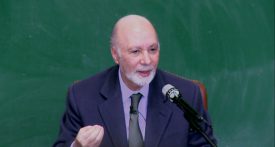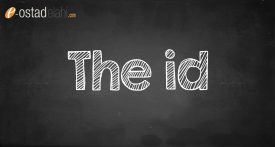635
Vote
Ostad Elahi’s philosophy is, as we know, grounded in the personal efforts made to gain greater self-knowledge not with the perspective of self development but of spiritual development. However, as soon as you set out to concretely experiment this philosophy and to undertake the work of spiritual perfection of the self, you are bound to encounter several forms of resistance.
For my part, ever since I have started making efforts to keep some of my character weaknesses in check and to develop my human qualities and my faith, through a variety of practices, I have observed the same pattern: at the beginning of each new practice I am highly motivated and focused on my objective and my efforts do not encounter any insurmountable obstacles. But then it doesn’t take long, maybe a couple of weeks, before my attention begins to dwindle and—unless I receive some help from the outside—I fall back into the same old negligence.
Read more
1988
Vote
Professor Elahi regularly lectures in Europe and North America. In October 2010, his talk in Paris focused on two key concepts in Ostad Elahi’s thought: self-knowledge and Perfection. Self-knowledge refers to active, concrete, in vivo knowledge of the powers that constitute our being, a knowledge that becomes more refined through the practice of true ethics, based on correct divine principles. According to Professor Elahi, everything else results from this, including the level of development reached by the “metabrain”, as well as the understanding and freedom that one can enjoy here and in the other world.
Read more
283
Vote
The id or the terrestrial soul is the part of us that constitutes the source of our material instincts. When these instincts lead us to harm other people or the celestial part of our selves, the id takes on the face of the imperious self, an unethical and anti-divine instinct-driven faculty that stands in opposition to our perfection.
In Freud’s structural model, the id is the name given to the instinctual entity from which all of our instincts spring, alongside the super-ego—the seat of morality—and the ego—the centre of willpower and conscious reasoning.
Read more

 News
News Podcast
Podcast






Recent Comments